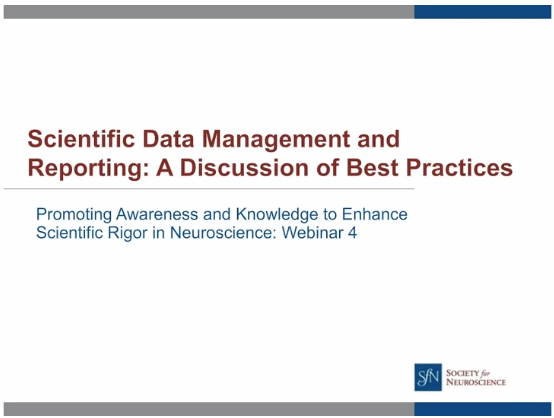Follow this module to learn how to correctly curate experimental data
After completing it, you should be able to:
- Identify risks relating to data governance and data integrity
- Mitigate data integrity risks, having conducted data integrity risk assessments.
- Describe various methods for dealing with outliers and explain when these methods are appropriate
- Describe various methods for dealing with missing data and explain when these methods are appropriate
- Correctly document data and describe procedures used for data handling, e.g. how missing data were imputed or how outliers were determined
- Explain the benefits of data sharing
Core materials
Material 1 – Recording data
Study this material to learn about:
- The basics of proper data recording and storage
- The importance of calibrating instruments
Type: Knowledge clip
Duration: 5 minutes
Created by: Healthcare triage
Study this material to learn about:
- The importance of good record keeping and data management
- Pros and cons of electronic and paper lab journals
- Recommendations for data sharing and how to overcome hurdles
Type: webinar
Duration: 60 minutes
Speakers: Rita Balice-Gordon, Elizabeth Buffalo and Katja Brose
Created by: Society for Neuroscience, featured in the Promoting Awareness and Knowledge to Enhance Scientific Rigor in Neuroscience webinar series
Material 3 – data integrity I: the ALCOA principles
Study this material to learn about:
- Improving the integrity of your data using the ALCOA principles
Type: weblecture
Duration: 10 minutes
Speaker: Martin Michel
Created by: EQIPD
Material 4 – data integrity II: the ALCOA-plus and FAIR principles
Study this material to learn about:
- Improving the integrity of your data using the ALCOA-plus and FAIR principles
Type: weblecture
Duration: 10 minutes
Speaker: Martin Michel
Created by: EQIPD
Bonus materials
Bonus 1 – Why data sharing and reuse are hard to do
Study this material to learn about data reuse challenges, including determining:
- what data could be reused
- by whom (expertise required)
- with whom (collaborative environments)
- under what conditions (issues of data quality and curation)
- why (needs for data integration, control and comparison)
- and to what effects (types of analysis)
Type: webinar
Duration: 60 minutes
Speakers: Christine Borgman and Irene Pasquetto
Created by: NIH Big Data 2 Knowledge Training Coördinating Centre
Additional resources
- Article: How to pick an Electronic Laboratory Notebook (Nature Toolbox article)
Was anything missing? Would you like to suggest another training material or resource? Please click here for our suggestion form.
